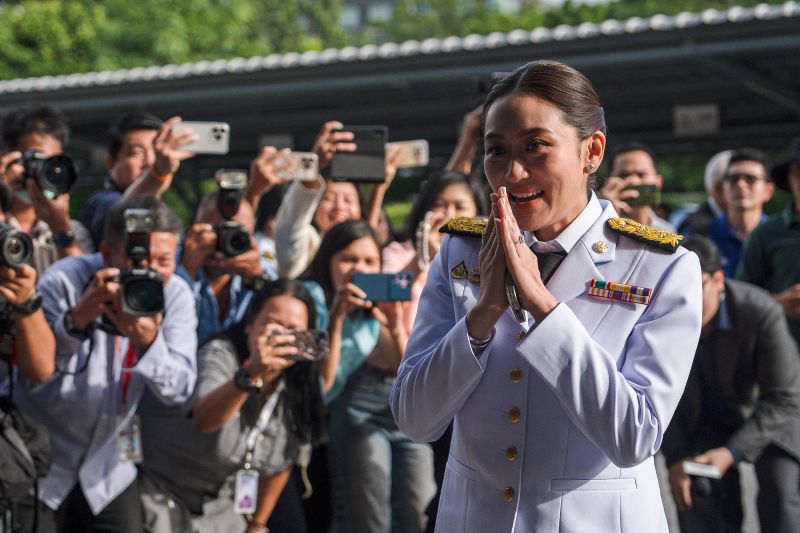The Kingdom of Thailand has just experienced a significant political development, an unprecedented one that sees a new leadership steering the country’s helm. His Majesty King Maha Vajiralongkorn has officially endorsed Paetongtarn Shinawatra as the new Prime Minister of Thailand. This event, marked lavishly traditional in Thai customs, is the beginning of a new chapter for the South-East Asian nation, as it strides towards a promising future.
Paetongtarn Shinawatra is no stranger to the Thai people. Daughter of the former Prime Minister, Thaksin Shinawatra, Paetongtarn possesses an inheriting legacy that seems to have inspired her bid for political involvement. Her father, often marked as a controversial figure, was ousted by a military coup in 2006. Despite various criticisms, Thaksin Shinawatra and his family remain a powerful influence within the political realm of Thailand.
His Majesty King Maha Vajiralongkorn’s endorsement of Shinawatra comes to many as an unexpected surprise, given the nation’s history of turbulence with the Shinawatra legacy. Notwithstanding the historical tensions, the endorsement depicts an image of reconciliation and unity from the top of Thailand’s monarchy, a move many believe could signal a new era of political culture in the country.
As the next Prime Minister, Shinawatra’s role is both challenging and retreating, given Thailand’s complex political ecosystem. The position, which draws authority from both the government and the monarchy, involves juggling the expectations of the progressive urban population with the conservative rural folks. Shinawatra’s political ambition, combined with her unique insight and perception of the Thai social fabric, could potentially steer the nation from division toward unity.
Shinawatra’s appointment to the prime minister’s office is not only historical but also impactful with regards to gender equality in the realm of Thailand’s politics. Being only the second female prime minister in the country’s history, she represents a shift in traditional norms and sets the stage for other aspiring female politicians in the future.
In the economic sphere, Shinawatra is expected to continue the ‘Thaksinomics’ legacy, a populist economic policy established by her father that centers around infrastructural development, debt relief, and healthcare improvement. These policies gained tremendous popularity among the rural community, especially in the northeastern region, which is considered the poorest in the country.
Relieving the national debt, improving public healthcare, and reducing inequality are all tricky matters. However, with power passed into fresh hands, that of Paetongtarn Shinawatra, the people of Thailand are optimistic. She has shown promise and clear articulation of her vision for the country, leading many to believe that she will successfully bridge the gap between the urban and rural populations of Thailand.
All said, the endorsement by His Majesty King Maha Vajiralongkorn is the beginning of a new era for Thailand under the leadership of Paetongtarn Shinawatra. As the country navigates this political transition, the rest of the world will watch with interest to see how Shinawatra’s administration unfolds, particularly regarding the economic and social path it charts to guide the nation into the future.




